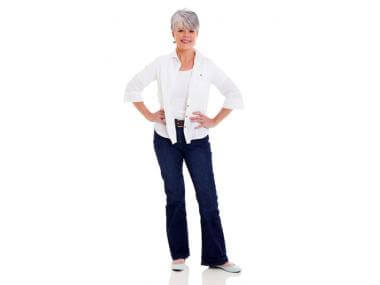Despite High Protein Diet Craze, Seniors Likely to Be Deficient
Most Americans get one-and-a-half to two times the recommended amount of protein in their diet. But one group of Americans is barely getting enough. Are you at risk?
It seems like everyone is trying to eat more protein these days. Ironically, most of us were already getting more than enough protein to meet our biological requirements. But there’s one group of Americans that is not getting enough protein: older women. On average, protein intake among older women hovers right at the minimum recommended intake – and close to 1 in 10 are sinking below that minimum.
And now, researchers from Purdue University suggest that the amount of protein recommended for older adults is actually much too low. According to this new information, a majority of older women may be deficient in protein.
What’s Wrong with the Current Protein Guidelines?
Older adults need fewer calories and the current dietary recommendations simply scale protein intake down proportionately. Although our calorie needs decrease as we age, our protein needs actually increase. That means we need to get a bigger and bigger percentage of our calories from protein. But that’s exactly the opposite of what happens for many seniors.
 5 Reasons Seniors Eat Less Protein
5 Reasons Seniors Eat Less Protein
-
Reduced appetite
-
Reduced enjoyment of food due to less acute sense of taste and smell
-
Problems with teeth or dentures
-
Fixed incomes
-
Not cooking as much
Older people are more likely to make a meal out of a can of soup. Or cheese and crackers. Or even cereal and milk. And although those foods contain some protein, it’s simply not adding up to enough.
How Much Protein Do You Need?
If you are over 65, try to get between 60 to 80g of protein per day. If possible, get at least half of that from animal sources such as eggs, meat, dairy, fish, or poultry. Of course, if your doctor or nutritionist has advised you to restrict protein intake due to a medical condition, follow your health professional’s advice.
See also: Surprise! Meat May Slow Aging and Nutrition Diva’s Protein Cheat Sheet
You May Also Like…


 5 Reasons Seniors Eat Less Protein
5 Reasons Seniors Eat Less Protein



